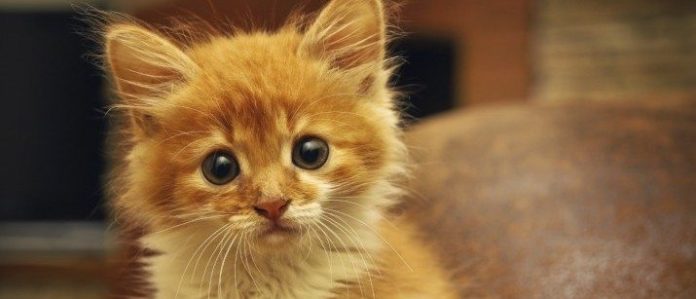Cat flu is a common upper respiratory tract infection in cats, caused by two different types of viruses: Feline Herpesvirus or Feline Calicivirus.
Like human flu, cat flu is contagious and can be spread through contact with an infected cat.
A unique trait of cat flu is that most cats already carry the Feline herpesvirus. However, this virus typically remains dormant and does not cause any symptoms. It can be activated by being in conditions that are stressful. Stress lowers the immune system and allows the virus to multiplying start causing cat flu.
This also means that cats showing symptoms of cat flu can be highly contagious as they can expose other cats to high volumes of the virus.
This makes the most common place for cat flu to occur as being shelters and boarding facilities, where a cat is oftentimes stressed out and close to lots of other cats.
Symptoms of Cat Flu
The symptoms of both forms of cat flu are very similar, and may include:
- Sneezing
- Blocked or runny nose
- Inflamed, weepy eyes / conjunctivitis (mostly in Feline Herpesvirus)
- Mouth ulcers (mostly in Feline Calicivirus)
- Reduced appetite
- Drooling
- Fever
- Lethargy
Cat Flu Health Risks
Healthy, vaccinated adult cats often only experience very mild symptoms when contracting cat flu. However, if your cat is very young or very old, is immunosuppressed or has not been vaccinated, a simple case of cat flu can quickly become life threatening – especially if secondary bacterial infections set in.
Some of the complications of cat flu may include:
- Breathing difficulties
- Starvation, especially as cats lose their sense of smell
- Dehydration
- Permanent eye damage
- Abortion (during pregnancy)
How to Treat Cat Flu
If you suspect your cat has cat flu, it is important to see a vet as soon as possible (especially if your cat is particularly young or old). If left untreated, symptoms will often get worse quickly, and it may take longer for your cat to recover.
There are no drugs that been proven to be able to kill cat flu, so treatment is usually aimed at alleviating symptoms and fighting off secondary bacterial infections until the cat recovers on its own.
Antibiotics are commonly proscribed, and eye treatment may be given in case of conjunctivitis. Occasionally antiviral medications such as Famcylcovir may also be prescribed.
If your cat is dehydrated, fluids may need to be given. Your vet may also recommend appetite stimulants or critical care food if your cat is reluctant to eat.
If you have more than one cat, it is important to isolate the infected cat from other cats in your household and to watch out for early symptoms.
Unfortunately, cats that recover from cat flu may become temporary or permanent virus carriers. This means that they may shed the virus into the environment, even if they do not appear to be sick anymore. Carrier cats are most likely to shed during bouts of illness, stress and sometimes boarding.
Preventing Cat Flu
The simplest way to prevent cat flu is by vaccinating your cat when it’s a kitten, and ensuring it receives its yearly vaccination boosters.
Although it is possible for a vaccinated cat to contract cat flu, the symptoms will be a lot less severe and easier to treat.
Cat flu can sometimes be passed on at boarding facilities. If you’re planning to board your cat somewhere, make sure they require a vaccination certificate and that they keep cats separate.









